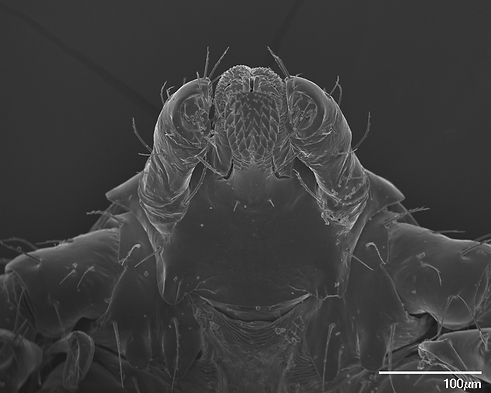
Advancing neuroscience for neurodegenerative diseases
with The University of Cambridge
Neurodegenerative diseases, such as Alzheimer’s and Parkinson’s, are becoming increasingly prominent in our ageing populations. In recent years, the prevalence of these conditions has been rising dramatically, leading to a significant burden on healthcare systems, families and economies worldwide.
Traditional drug development pipelines for neurodegenerative diseases have largely failed due to the complexity of these disorders and the long period in which they develop before symptoms become apparent.
Environmental factors such as climate change, pollution and poor diets further contribute to the increasing incidence of neurological disorders. If new, effective treatments are not developed, millions more individuals face debilitating cognitive and motor impairments, placing immense strain on medical resources, global economies and caregivers.
A fresh approach is urgently needed – one that leverages cutting-edge neuroscience, innovative technology and novel biological models, to identify early disease markers and potential therapeutic targets for neurodegenerative diseases.
Why Pasteur and Cambridge?
The Institut Pasteur is a globally recognised leader in biomedical research, known for its multidisciplinary work within the field of neuroscience. The Decision and Bayesian Computation (DBC) - Epiméthée (EPI) laboratory at the Institut Pasteur, focuses on uncovering the organising principles of biological information processing through advanced statistical modelling. They study phenomena such as bacterial chemotaxis, olfactory search strategies and synaptic variability. The lab’s theoretical research explores embodied neuroAI (focusing on the interaction between the environment and the body to understand the mind) and neural circuit organisation, while its applied work emphasises medical algorithms, including medical imaging technologies.
The MRC Laboratory of Molecular Biology at the University of Cambridge is at the forefront of neurobiology, particularly in understanding neural circuits and disease mechanisms. Within the MRC Laboratory of Molecular Biology, the Zlatic and Cardona labs specialise in using larvae of Drosophila melanogaster (fruit fly) to study neural network function, decision-making, and neurodegeneration, providing an innovative and scalable model system for studying neurodegenerative disease. Despite the evolutionary distance, the fruit fly shares significant genetic and biological similarities with humans, making it a valuable model for studying complex neurological conditions.
In recent years, research using fruit fly models has led to several breakthroughs with direct implications for human health such as; developing comprehensive maps of the fruit fly's brain, enhancing our understanding of the organisation of the human brain, detecting ways to prevent neuronal decay in fruit fly models of Parkinson's disease and identifying signaling pathways that are disrupted in neurodegenerative conditions which can be potential targets for therapeutic intervention.
The Partnership
This proposed partnership between the Institut Pasteur and the University of Cambridge focuses on early-stage neurodegenerative disease research by leveraging the University of Cambridge’s fruit fly larva model and the Institut Pasteur’s advanced statistical modelling.
By leveraging the simplicity of the fruit fly larva model available at the University of Cambridge, the genetic tractability of fruit flies and their biological similarities to humans, and the advanced statistical modelling developed at the Institut Pasteur, researchers will be able to rapidly explore mechanisms and potential treatments of neurodegenerative diseases, accelerating the translation of these findings into human health benefits and revolutionising the study and treatment of neurodegenerative diseases.
Despite initial scepticism, the fruit fly larva has proven highly effective in studying fundamental neural processes and disease progression. Key breakthroughs achieved so far include:
-
Identifying neural pathways involved in decision-making and learning.
-
Developing an Alzheimer’s disease model in fruit fly larva.
-
Detecting early biomarkers of neurodegenerative disease.

The partnership will initially focus on two main areas:
-
Fundamental research: Investigating the early development and progression of neurodegenerative diseases in small neural networks. This is crucial, as understanding the series of events leading to neuronal cell death can pave the way for early diagnostic tools and preventive strategies. In recent years, insights into protein misfolding and aggregation, for instance, have been identified as key events in the progression of neurodegenerative diseases, and it is now thought that targeting these processes could lead to earlier diagnosis and intervention.
-
Drug Discovery Pipeline: Using the fruit fly larva model to test potential therapeutic compounds at a large scale. The scalability of this model allows for high-throughput screening of numerous compounds, accelerating the identification of promising therapeutic candidates. Recent advancements have demonstrated the potential of such models in detecting and analysing biomarkers associated with neurodegenerative diseases, which is essential for assessing treatment efficacy and disease progression.
The partnership between Cambridge and Pasteur aims to establish a long-term research initiative that can expand to include advanced computational modeling of neurodegeneration, integration with AI-driven drug discovery platforms and translational research in collaboration with clinicians.
Programme Directors
The programme is jointly led by representatives from the Institut Pasteur and the University of Cambridge. These are:
-
Dr Jean-Baptiste Masson Principal Investigator of the Decision and Bayesian Computation lab at the Institut Pasteur
-
Dr Marta Zlatic Director of Research, Department of Zoology at the University of Cambridge
-
Professor Albert Cardona Programme Leader, Department of Physiology, Development and Neuroscience
How can you help?
Both the Institut Pasteur and the University of Cambridge wish to strengthen this partnership to investigate early development and dynamics of neurodegenerative diseases in fruit fly larva. We are now actively seeking funding to expand this partnership by:
-
Creation of a joint-Chair position: Between the DBC-EPI laboratory at the Institut Pasteur and the MRC Laboratory of Molecular Biology at the University of Cambridge.
-
Funding of a joint-PhD Student: To work across both institutions, combining expertise in experimental neuroscience and computational modelling.
If you would like to learn more about how you can support this project, please get in touch at info@pasteurfoundation.uk
_edited.jpg)